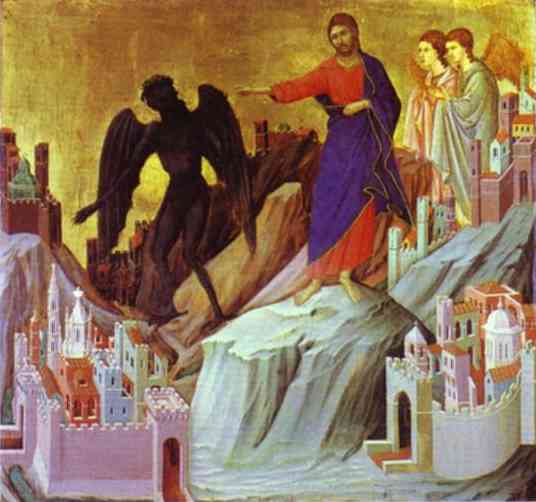 “Man does not live by bread alone.” (Lk 4:4)
“Man does not live by bread alone.” (Lk 4:4)
The Gospel of the first Sunday of Lent invites us to meditate on the Temptations of Jesus in the desert which occurred immediately after the Lord’s baptism in the Jordan by St John the Baptist.
It was during the Lord’s baptism that a voice from heaven said: “You are my beloved Son; with you I am well pleased.” (Lk 3:22) We can imagine that upon hearing these words, the king of this world, the devil, immediately started to work against this Man – God who was to destroy his mission of darkness forever.
In this time of meditation and prayer, St Luke highlights the fact that Jesus doesn’t eat anything and this action therefore has a material significance. The bread, which is the food for the body, is not enough for man. Every man is formed of a body and a soul. Therefore, how is it that very often we only take care of one of the two parts that comprise ourselves. Jesus’ words help us to reflect and understand that we also have a need of our spiritual bread, as without it our soul will be destined to find itself in a desert that is truly without water and is exposed to the heat of the sun. We know that, at the time of Jesus, the desert was considered a place that was habited by devils, and this condition also signifies an arid soul whose soil is fertile terrain for the king of this world. Paradoxically, we must give our spiritual lives most attention considering that our souls will remain and, as we say on Ash Wednesday, our bodies will ‘return to dust.”
In Jesus’ second temptation, Satan tries to get Jesus to adore him in exchange for the power and riches of this world, or rather the glory of this world.
Jesus immediately dismounts the transitory and illusory proposal made to Him by the devil by reaffirming, in conformity with the first commandment, “You shall worship the Lord, your God, and Him alone shall you serve.” (Lk 4:8) This refusal of the glories of this world by Jesus teaches us that there is no greater glory than that to which, in Christ, we are destined to inherit. It is a glory that isn’t attached to power, success, money or prestige but rather the cross through which we can understand our free and trusting acceptance of the Father’s Will knowing that with the Lord “all things work for good for those who love God.” (Rm 8:28)
In the last temptation the devil invites Jesus to throw Himself down from the parapet of the temple so that the angels will save Him and all will believe in Him. To this temptation Jesus responds saying, “You shall not put the Lord, your God, to the test.” Again, Jesus refers to the Father and affirms His unfailing trust in Him and fully embraces His mission. Before this response, the devil is defeated and goes away.
“If you are the Son of God….” Even today this question is directed to all Christians from many men even if by using slightly different words. “Is He really your God? ….why?” This is a powerful meditation as we start our lenten journey.
